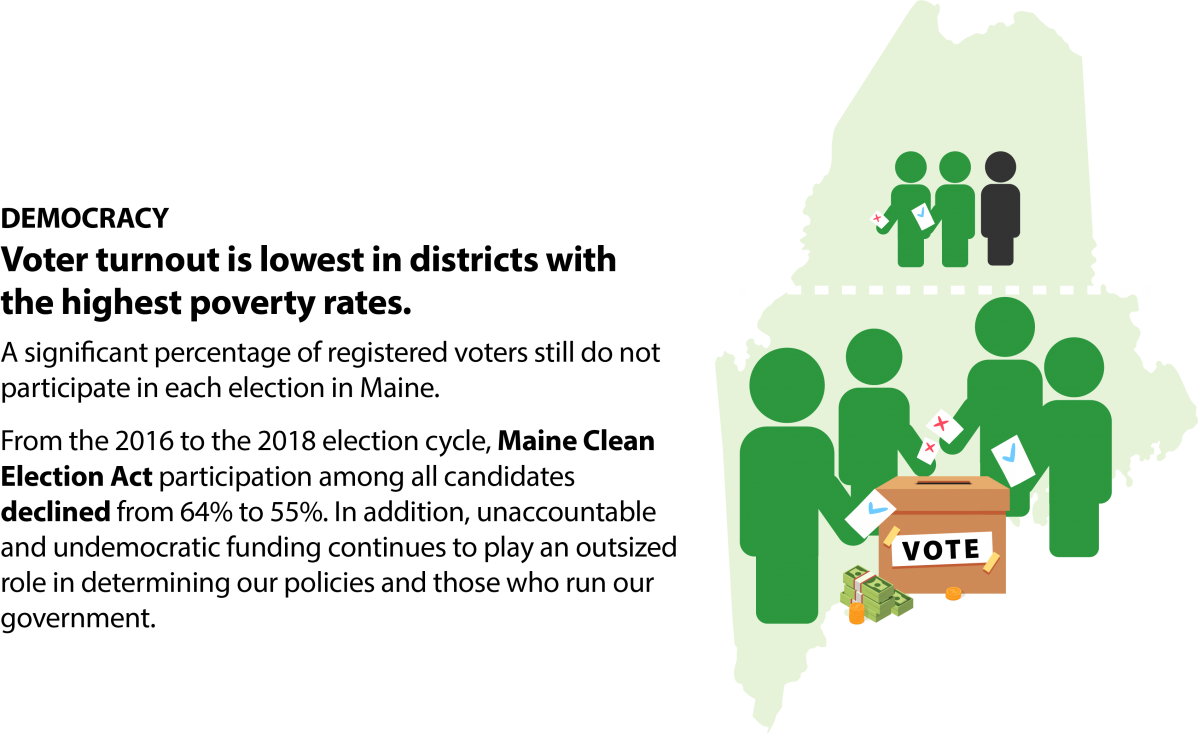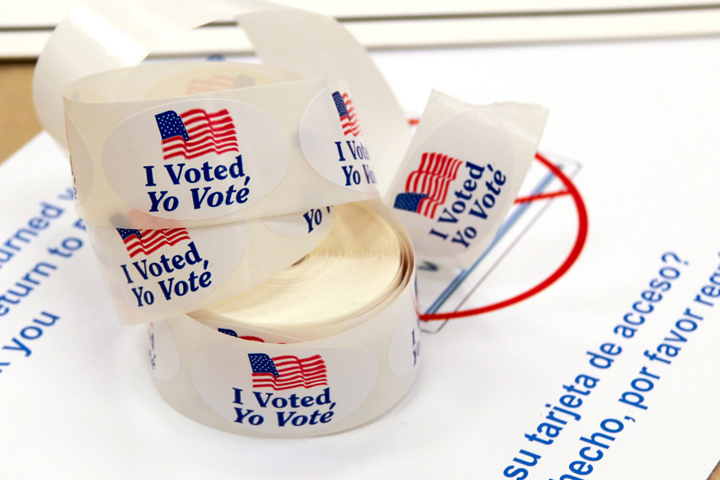Democracy Reform
We like to brag that Maine leads the nation in voter turnout, but that story changes once you look below the surface. In the richest and whitest Maine communities, 2016 voter turnout reached up to 86%. In the poorest and most racially-diverse districts, it barely reached 50%.
The pandemic has changed the status quo of how we hold elections - and created particular challenges for already-marginalized communities. No one should have to choose between their health and their ability to vote. We need a robust election system that ensures every eligible voter is registered, including not only same-day and automatic voter registration but also online registration options.
We need an election system that preserves voter options to choose between voting in-person on Election Day, in-person early, or by absentee ballot. We must also invest in our election infrastructure so that all voters get accurate information and equal opportunities to participate, no matter where in the state they live.

It’s not enough for people to have the ability to participate - they have to know that their vote matters to the people in charge. We must change the power structures which have privileged the white and wealthy at the expense of everyone else. That means ensuring a fully-funded Clean Elections system and other reforms like National Popular Vote, Ranked Choice Voting at all levels, and a ban on corporate contributions, all of which will put more power in the hands of everyday people. As a state we should do everything in our power to change these dynamics including being willing to support and lobby our Federal and State officials to pass and ratify a Constitutional Amendment limiting the power of money in politics.
Efficient, high speed access to the Internet for all Maine residents regardless of geographic location or demographics is a necessity for assuring equal access to local and state government; for maintaining openness and transparency in government activities; for communicating with legislative leaders; for engaging in political discourse; for competing in the global marketplace; for providing full and equal access to education, commerce, and civic life; and for assuring that voters receive the information they need to participate in our democracy.
